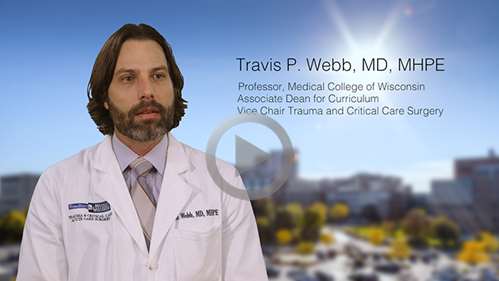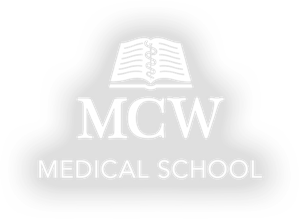Discovery Curriculum Overview
Basic Sciences
Your First-Year course of study ensures students with varied backgrounds master fundamental basic science content before progressing to complex biomedical problem-solving in organ system units. Your Second-Year courses are fully integrated and continue your preparation for the United States Medical Licensing Exam Step 1. Systems-based and symptom-based units are organized around common symptoms and focus on assimilating your knowledge of the basic sciences acquired in your First Year.
Early Clinical Experiences
In the first half of the year, you will begin learning the basic clinical competencies required for working in the clinics – which commences in the second half of the year. During the clinical apprenticeships in the second and third sections, preceptors mentor you, observe your respective levels of patient care and provide direct feedback. The fourth section emphasizes clinical skills practice, allowing you to hone the skills they have absorbed in the clinic. Your Third and Fourth Years feature increased exposure to the clinical experience by way of clerkships and sub-internships – along with continued exposure in the basic sciences.
Interprofessional Education (IPE)
You will learn about and participate in various IPE sessions throughout the curriculum. You will be introduced to IPE early on and have an opportunity to work in student interdisciplinary teams with partnering institutions. In the succeeding years, you will choose from IPE electives including hands-on IPE simulations, IPE panel discussions and IPE interdisciplinary case-based discussions to appropriately assess and address health care needs of a patient. Your IPE experiences will provide you with the tools to identify your own professional role, identify the roles of other professionals, and learn how to effectively collaborate with other health professionals in order to establish mutual respect, dignity, diversity, ethical integrity and trust.
MCW Milwaukee Campus Partners:
- MSOE School of Nursing
- Milwaukee Area Technical College
- Alverno College (was Columbia College of Nursing)
- Mount Mary University
- Marquette University
- Concordia University

Individualized Study Time
Because we understand everyone learns in a multitude of ways, our Discovery curriculum includes dedicated independent study time, allowing you to prepare and/or review material in a manner best suited to your respective learning style.
Clinical Years
The Third Year of MCW-Milwaukee’s Discovery curriculum includes three 16-week blocks with “like” clerkships grouped together with some shared clinical experiences. Our seven clerkships include required rotations in Anesthesiology and Internal Medicine. You will have 2 – 10 weeks of elective time available allowing early flexibility in your schedule to explore career opportunities.
Your Fourth Year incorporates plenty of electives and vacation opportunities for interviewing, in addition to solid preparation for residency, requiring two Acting Internships, an outpatient clerkship and a Capstone course.
Continuous Professional Development
Your Third and Fourth years are closely managed by a Continuous Professional Development (CPD) course that focuses on the longitudinal progression of clinical skills and integration of cross-cutting topics including the basic sciences. The CPD course ensures you will become a well-rounded student that is prepared for residency and has mastered the MCW Global Competencies (PDF) in order to help you become a successful physician.
Scholarly Pathways
MCW-Milwaukee’s Scholarly Pathways program provides you the opportunity to individualize aspects of your medical education by participating in one of our areas of concentration and by pursuing scholarly projects.
Each of the pathways features two components, the first is a structured curriculum with a core set of competencies delivered through monthly workshops, or core sessions. The second comprises flexible, experiential non-core activities in which each student is guided by a faculty advisor and their own individualized learning plan (ILP) to apply the core concepts in a variety of settings. At the end of the M3 year, students must have completed a scholarly project.


